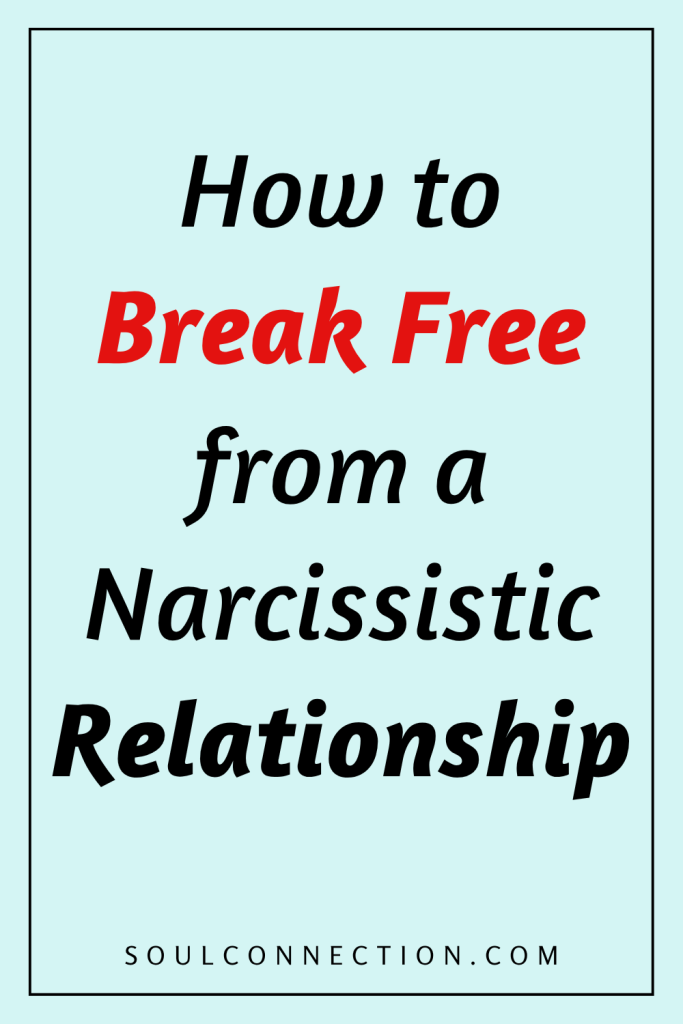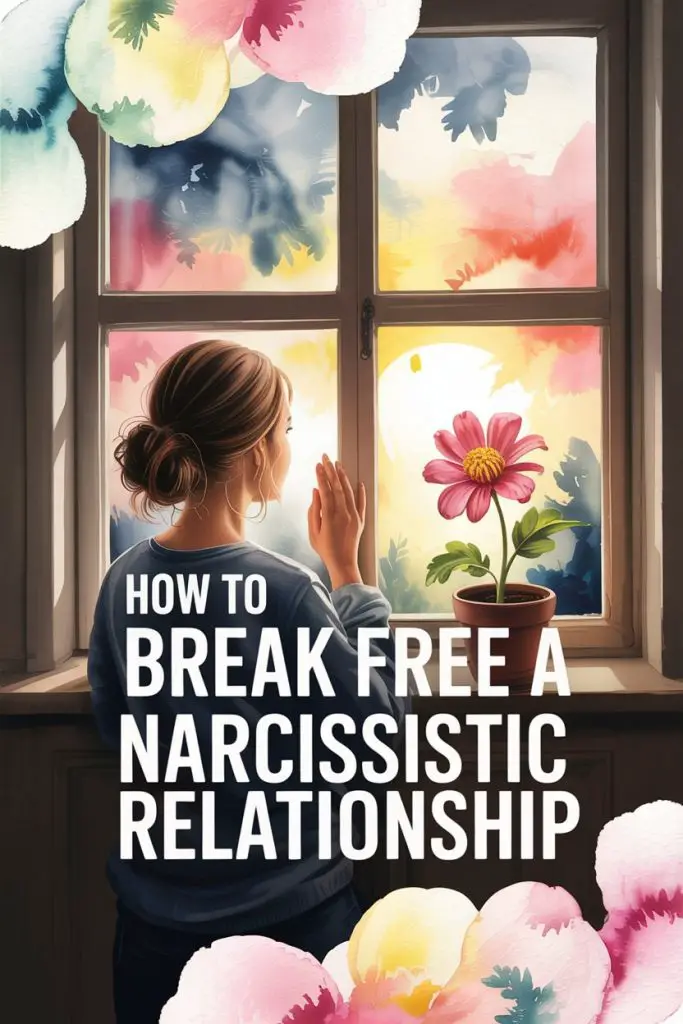Picture this: You’re sitting across from someone who could give a masterclass in making every conversation about themselves.
You open your heart, and they respond with a monologue about their own brilliance, punctuated by a vague, “Wow, that’s tough for you.”
If this sounds familiar, congratulations! You may be in a narcissistic relationship.
Don’t worry, you’ve got company—plenty of us have wandered into this emotional funhouse before discovering it’s more haunted than fun.
Climbing out of this maze isn’t easy, but it’s possible. Ready for a life where your feelings are more than background noise? Here’s how to break free and reclaim your sanity in the process.
Spotting the Narcissist in the Wild
Identifying a narcissistic partner is a little like spotting a peacock: lots of dazzling feathers, a tendency to strut, and a suspicion that you’re there mainly to applaud.
Narcissists aren’t just confident—they’re pathologically self-absorbed, crave admiration, and rarely display genuine empathy.
Maybe your partner’s apologies always come with an asterisk, or maybe you’re forever cast as both the villain and the audience in their ongoing soap opera.
Gaslighting is their party trick: “You’re imagining things.” “You’re too sensitive.” If your reality always seems up for debate, you might be in a narcissist’s orbit.
Setting Boundaries Without Building a Fortress
Boundaries are your best friends right now. Not the fun, “let’s-go-to-happy-hour” friends, but the ones who show up when your car breaks down at midnight.
Start small. If you’re still living together or in regular contact, decide what topics or types of behavior are off-limits.
“I’m not comfortable discussing my family with you when you use it against me” is a perfectly valid sentence, even if they respond by clutching their pearls.
Expect pushback. Narcissists treat boundaries like speed bumps—meant to be ignored or flattened. Hold steady. The goal isn’t to make them reasonable; it’s to keep yourself sane.
Rallying Your Support Squad
Now is not the time to play the lone wolf. Reach out to friends, family, a therapist, your neighbour’s dog—really, whoever can offer a listening ear or a warm cuppa.
Narcissists love isolation. The less support you have, the easier it is for them to script your reality. Start reconnecting with your old crew.
If embarrassment has kept you quiet, remember: even the most together people can get tangled up with a smooth talker. Vulnerability is a superpower here.
If you’re worried about oversharing, pick one trusted person to confide in. You need someone who can gently remind you that you’re not losing your mind.
Creating a Game Plan for Exit
Breaking free is rarely a single dramatic leap—it’s usually more like a series of awkward, brave steps. Planning ahead is key, especially if your narcissist has a flair for melodrama or retaliation.
Start gathering important documents (identification, bank info, lease agreements) and stashing a little emergency cash if you can swing it.
If you’re married or have kids, consult a lawyer or a counselor who specializes in high-conflict relationships. Yes, it’s boring. No, you won’t regret it.
Set a timeline, even if it has to be flexible. Knowing your goal can help you push through the moments when leaving feels impossible or guilt-inducing.
Handling Their Reaction Without Handing Over Your Peace
The narcissist’s reaction to your exit will be equal parts Shakespearean tragedy and tabloid scandal. Expect love-bombing, guilt trips, threats, or sudden promises of self-improvement.
It’s not a sign they’ve changed; it’s a sign you’re disrupting their supply chain.
Limit contact as much as possible. If you share children or property, keep communication dry and businesslike.
Read your texts out loud in your best lawyer voice—if it sounds like something from a court transcript, you’re on the right track.
If they escalate to threats, document everything and don’t hesitate to involve authorities. Your safety trumps their ego, every time.
Rewiring Your Brain After Narcissistic Conditioning
Post-narcissist life can feel a bit like stepping off a rollercoaster: disorienting, exhilarating, and slightly nauseating.
Cognitive dissonance is real. Years of being told your needs are selfish or your memory is suspect leave a mark. Therapy can help untangle this spaghetti pile of self-doubt and misplaced loyalty.
Make self-care more than a hashtag. Rest. Eat food that makes you feel alive. Listen to music you chose. Spend time with people who don’t treat your emotions like an inconvenience.
Rediscover hobbies or goals that got sidelined in the relationship. Small joys matter; they’re your breadcrumbs out of the woods.
Avoiding the Replay Button
Narcissists have a radar for people with big hearts and shaky boundaries. The post-breakup glow is prime time for new admirers—some of whom may be cut from the same self-obsessed cloth.
Reflect on red flags you missed. Did you excuse cruel jokes as “just their humor”? Did you always make the first move to patch things up? These patterns are invitations to do things differently next time, not to beat yourself up.
There’s no need to swear off love forever. Just promise yourself a little more skepticism before you hand out backstage passes to your inner world.
Coping With the Emotional Fallout
Leaving a narcissist isn’t like walking away from a garden-variety breakup. The emotional hangover hits hard—grief, relief, guilt, anger, sometimes all before breakfast.
Grieving the relationship (and the fantasy of who your partner could’ve been) is normal. So is blaming yourself for “not trying harder.” Spoiler alert: you tried hard enough for the both of you.
Channel those feelings somewhere safe. Journaling, therapy, ugly-crying into a pillow—pick your flavor.
Stay off their social media. Curiosity killed the cat, and it’s rough on your mental health, too.
Rebuilding Trust in Yourself and Others
After a narcissistic relationship, trust issues are the new black. Self-doubt is easier to put on than actual pants.
Start by giving yourself credit for getting out. Your instincts were always speaking—you’re just learning to hear them again, louder this time.
Practice making small decisions and noticing how they turn out. Which ice cream flavor? Which Netflix show? Celebrate every tiny act of self-trust.
When new relationships roll around, remind yourself it’s okay to take things slow. The right people won’t press fast-forward or punish you for needing reassurance.
Celebrating Your Comeback
Breaking free from a narcissistic relationship isn’t just about survival—it’s about giving yourself permission to thrive.
Take up space. Laugh loudly. Reclaim your time and energy. If you struggle to believe you’re worthy of good things, fake it till you make it—narcissists don’t have a monopoly on acting skills.
Mark your progress, however small: a day with no contact, a moment of peace, a night you didn’t cry yourself to sleep.
You got out. That’s brave as hell.
It’s Not You, It Was Never You
Escaping a narcissist’s grip is messy, courageous work. It’s also the first step toward a life where your needs count for something and your voice isn’t background noise.
The narcissist’s story about you was never the truth. Your ability to love, reflect, and grow is the real headline here.
Here’s to fewer monologues, more real conversations, and the kind of love—romantic or otherwise—that doesn’t come with a side of emotional whiplash.
Freedom looks good on you.


